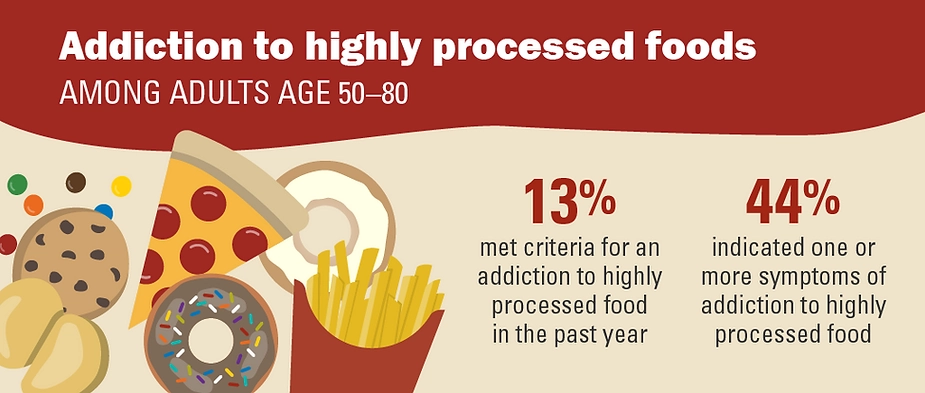Food addiction is a condition where some people experience a compulsive or uncontrollable urge to eat certain foods, especially those high in sugar, fat, and salt. These foods can activate the reward system in the brain, similar to addictive drugs, and make people crave more of them. Food addiction can lead to overeating, binge eating, obesity, and other health problems.
A recent poll conducted by the University of Michigan found that one in eight Americans over 50 show signs of food addiction. The poll surveyed more than 2,000 adults aged 50 to 80 and asked them about their eating habits and behaviors. The results showed that 13% of respondents met the criteria for food addiction, based on a questionnaire developed by Yale University’s Rudd Center for Food Science & Policy. The poll also found that food addiction was more common among women, younger adults, those with lower income and education levels, and those who were obese. READ MORE

The researchers said that food addiction is a serious issue that needs more attention and awareness. They suggested that people who struggle with food addiction should seek professional help and try to avoid their trigger foods. They also recommended that health care providers screen older adults for food addiction and offer them appropriate treatment and support.
The Food Addiction Institute advocates for a “food addiction informed” approach to treatment and support that includes abstinence from trigger foods including sugar, grains and highly processed foods, a structured and regulated daily meal plan, a support community, network, and daily communication with a primary support sponsor, coach, guide and/or committed listener, exercise, mindfulness, boundaries, and daily practice of self-care that addresses physical, emotional, psychological, spiritual and social needs.





